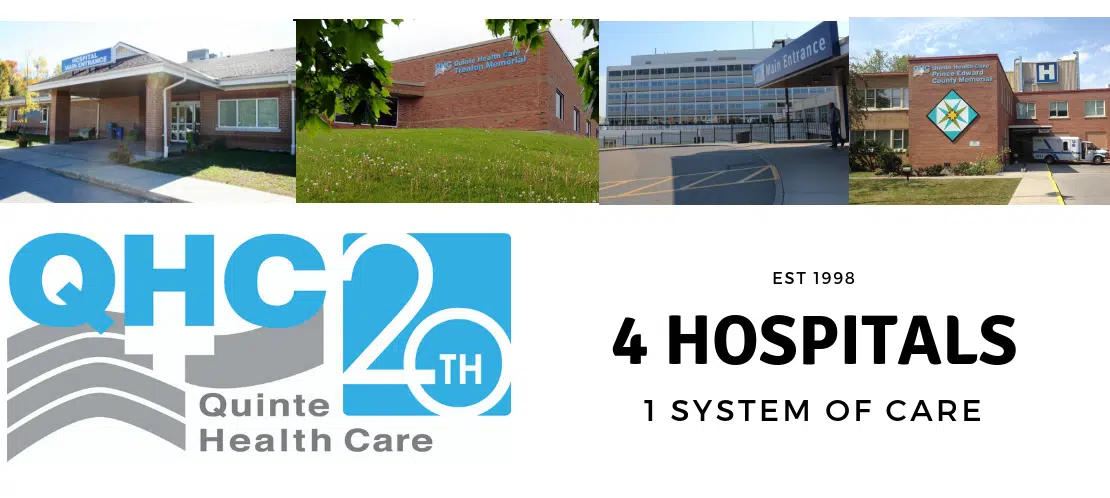The COVID-19 pandemic has forced change on everyone and not surprisingly among the most affected groups are health care providers.
At a ZOOM meeting of the Quinte Health Care Board, directors heard from their CEO and President and their Chief of Staff on how the organization has been handling the pandemic situation and how they plan to resume elective surgeries and procedures in the future.
CEO Mary Clare Egberts told the board that the number of patients coming to emergency rooms in the past few days has noticeably increased.
In fact, occupancy in QHC’s acute care beds has hit over 100% on six days in the month of May. The last time the system was over capacity was back in March.
The main reason for the increase in patients is that many people delayed trips to the hospital, choosing instead to stay home and wait out the pandemic.
An unfortunate consequence of that is that many of these people’s illnesses have worsened and they’re arriving at hospitals sicker than they had been and many have had to be admitted.
Chief of Staff Dr. Colin MacPherson also said hospitals were getting busier and added that urgent or emergent surgeries were increasing because patients were arriving in more serious condition because of their delaying a hospital visit.
Regarding a possible second wave of COVID-19 infections, Egberts said QHC was well prepared. The province is mandating that hospitals always run
with 15% of acute care beds reserved for a surge in patients and Egberts says QHC has a plan in place to set aside 30 beds to only be used in case of a sudden increase in patients, one that might be caused by a second wave of the novel coronavirus.
The 15% reserve bed capacity is also crucial to hospitals being able to restart elective surgeries and procedures. Without that surge capacity the provincial government won’t allow elective surgeries to resume.
There are also other benchmarks hospitals have to guarantee to meet before restarting such surgeries. They have to have at least a 30 day supply of personal protective equipment on hand, something QHC has at the moment. They also have to have a certain amount of staff ready to handle a surge, something that QHC could have a problem with. And, hospitals have to have important medications in reserve which is a challenge because many of the medications used to treat very sick COVID-19 patients are also commonly used in surgeries.
Both Egberts and Dr. MacPherson said plans were in the works to meet the benchmarks and they were working with their health care partners in the wider region to be able to gradually restart elective surgeries when the province gives the green light.
The pandemic has also forced change on the way patients are treated and communicated with. Dr. MacPherson says televideo appointments between doctor and patient have become much more commonplace during the crisis and they have been very effective. MacPherson says he expects that trend to remain as a positive development moving forward in health care.
On another note CEO Egberts thanked the wider community for their strong support of health care workers during the pandemic. Egberts said the drive-by salutes, the food, the flowers, and donations of masks and other equipment really boosted the morale of people working at all four QHC hospitals.
“All I would say is thank you so much, you’ve been great! But we’re okay at this point in time with one important exception. We’d really like people to continue donating hand-sewn masks and head coverings. They are really useful, not only in the hospitals but people can take them home, wash them, and use them day-to-day in the community. We’d love to have more of those.”
Staff and senior management at Quinte Health Care were also congratulated for their dedication, hard work and professionalism during these “unusual” times.






